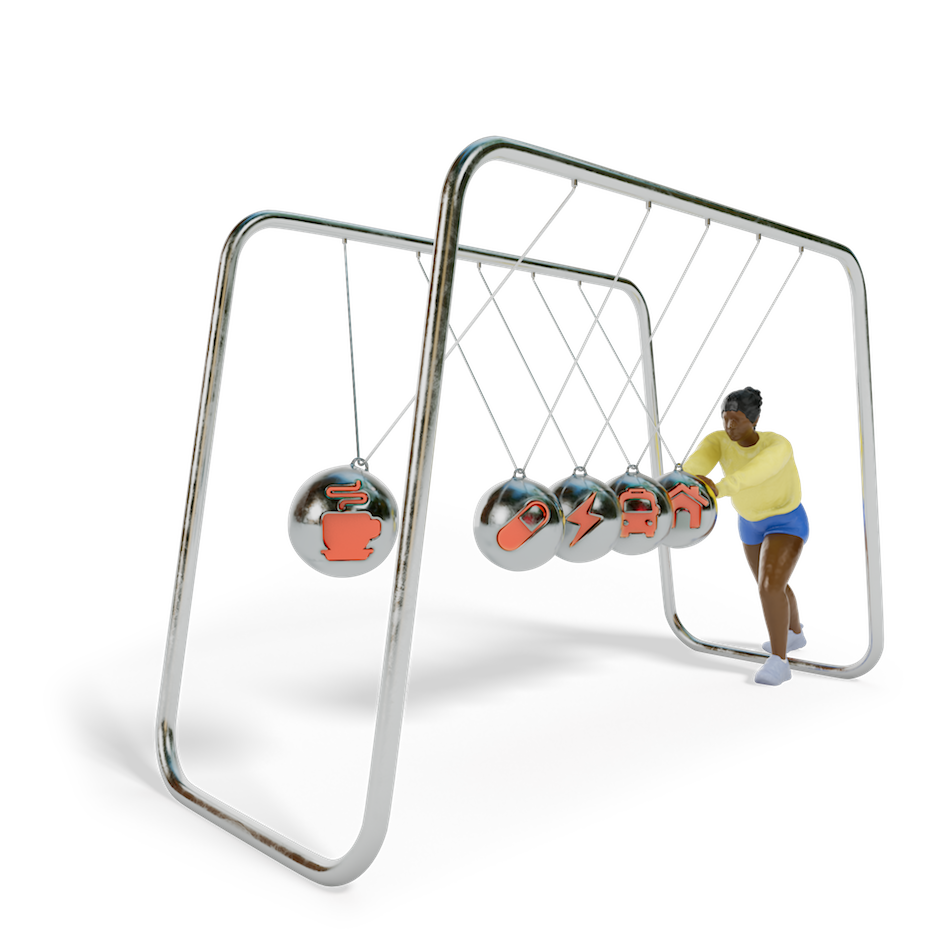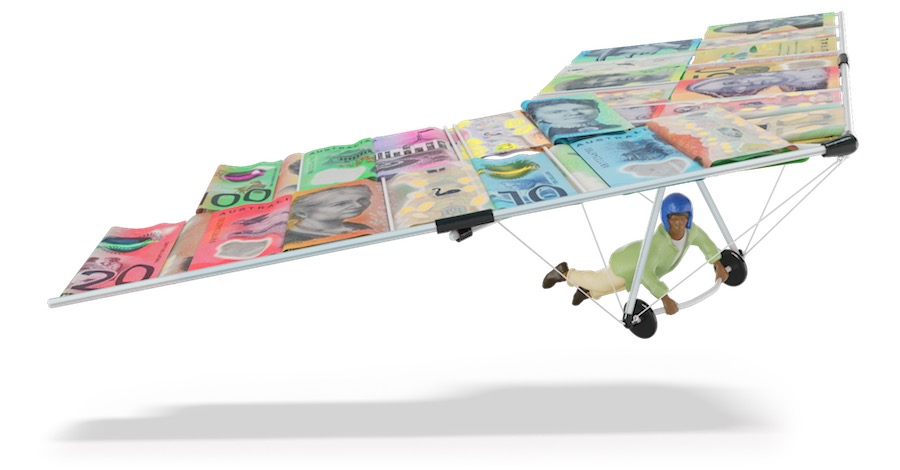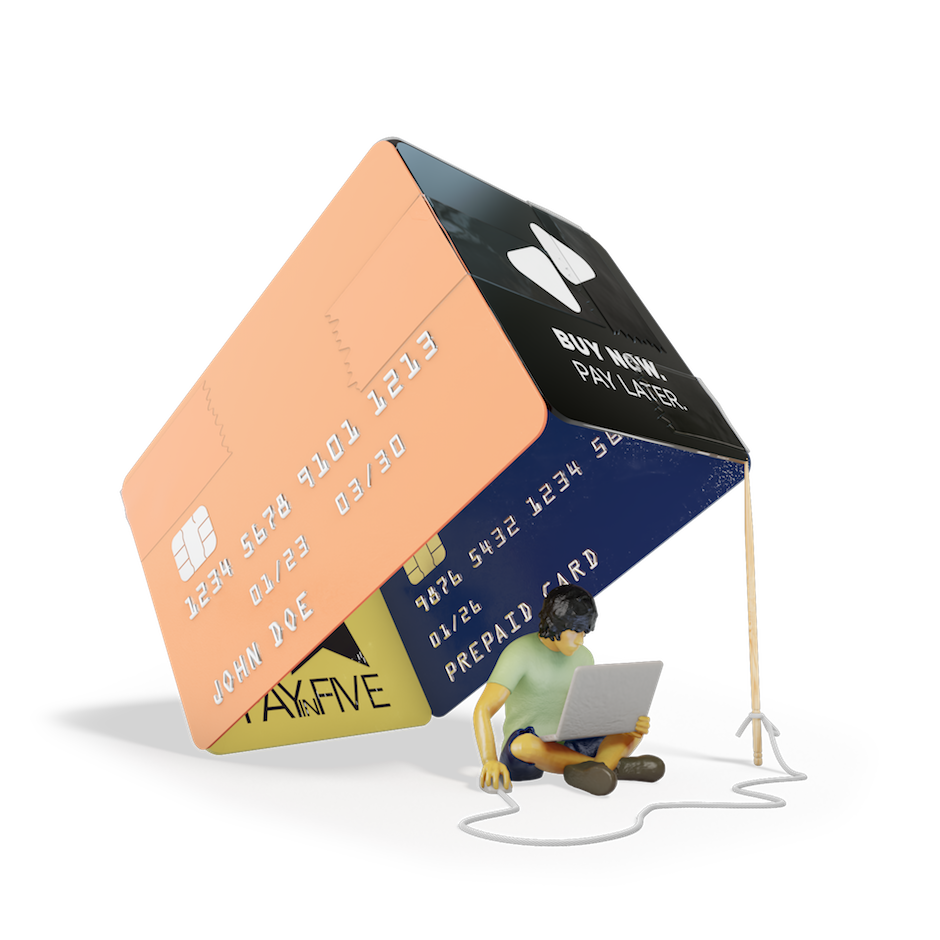Getting your own place can be expensive.
Moving out and finding your own place is part of growing up and becoming independent. However, it can also be one of the most expensive things a young adult can do. This is especially true in times of high house prices and rents. Once established in your new home, there are other expenses to consider: bills, everyday costs like groceries, and the cost of transport to get around. On this page we take you through some of these costs.

Renting
For many people, their first place after moving out of home will be a rental property leased on the private rental market. When renting on the private rental market, you (the ‘tenant’) pays money (called ‘rent’) to the owner of the property (usually called the ‘landlord,’ sometimes called the ‘rental provider’) who leases the property to you through a legal contract (usually called a ‘rental agreement’, ‘tenancy agreement’ or ‘lease agreement’) for a period of time.
📌 To learn more about the private rental market, the process to apply for rental properties, and your rights as a renter, see our renting page.
Share Houses
If you have trouble finding an affordable rental of your own, you might consider teaming up with a friend or relative who is also looking for a property to rent. Combining your budgets can help you secure a rental that may have been out of your reach before, but before doing so, consider what living with this person could be like. For example, will they reliably pay their share of the costs? Remember that by jointly signing the lease you are equally responsible for upholding the agreement. Some good things to consider doing before moving in is to agree as a group how you will:
- pay for bills, including rent and utilities
- pay for groceries
- withdraw from the rental lease (if one of you moves out)
- fairly share household duties.
Moving in with your partner for the first time
If you are moving out with your partner for the first time, it’s important to have an honest chat about your finances first. Get to know their attitude to money, and together agree what your goals are and what you can both afford. For more information:
Relationships and money – Moneysmart.gov.au
or, try out the financial toolkit made for and by young couples: A financial toolkit for couples.
Social housing
It can be very hard to find suitable and affordable rental housing in the private rental market when you are on a low income. Governments and community organisations run social and affordable housing programs to provide a home at a cheaper rate for people on low incomes and those who have recently experienced homelessness, family violence or have other special needs. Unfortunately, waiting lists for social housing are very long in most parts of Australia due to severe shortages of available housing.
📌 To learn more about help that is available if you are experiencing housing stress, see our handling housing stress page.
Bills
There are many other costs that need to be paid to make a new home liveable. You need to pay for things like electricity, water, and the internet. These costs come to us as bills.
Bills are a statement of money owed for goods and services provided. Paying for these goods and services means that you’ve entered a contract with a provider to supply you with their product in return for your money.
Finding a better plan
As with most products, things you’re billed for are usually bought at your discretion. This comes with the advantage of choice, although in a busy market with many retailers and service providers, choice may not always be helpful.
With essentials like electricity, for example, lots of expensive service providers to choose from may not seem like much of an advantage.
Splitting bills
If you live with your partner or in a shared house, it is usually considered fair to split bills between everyone who lives in the house. As with splitting rent, it’s important to set the ground rules, and have a clear agreement between yourself and your housemates on who pays what, and who is named on the bill. Remember that whoever is named on the bill is ultimately held responsible for paying by the service provider. You might want to try one of the many digital tools and apps available to help you and your housemates keep track of who owes what.
📌 To learn more about bills, concessions you may be eligible for, and getting support, see our paying bills page.
Transport costs
Unless you can walk or bicycle everywhere, moving between work, study, home, friends, and everything else costs money. Cars and motorbikes need fuel, maintenance, insurance and registration. Public transport is ticketed, and taxis or rideshares are ‘pay as you go’.
📌 To explore transport options, concessions, and the costs of buying and running a car, see our transport page.

Everyday expenses
Aside from bills and transport there are plenty of other everyday essentials that you need to pay for. Groceries, clothes, and even just whatever you want to do for fun. They all cost money. Getting by on a tight budget shouldn’t stop you from having a healthy and fulfilling life, so we’ve compiled tools, resources, and tips for you to get more for less.
📌 To learn detailed information about managing everyday expenses, finding cheaper things and budgeting tips, see our everyday expenses page.
What happens when you can’t afford the basics?
Many people living in Australia struggle to get by due to things outside of their control, like the rising cost of living. If you’re having trouble paying for everyday expenses, or feel overwhelmed by money problems, see the steps you can take.
Taking on loans and debt
Many people pay for things with loans or credit. This means that they’re going into debt to cover the cost of something. Unexpected expenses can come at any time, and without enough set aside in savings, a loan or credit might be the only way to pay. While this can be fine it’s important to remember the financial risks of going into debt.
What about Buy Now Pay Later?
Today, there are many financial products that make it easy to go into debt. For example, using Buy Now Pay Later (BNPL) products. Even though they’re advertised as being ‘interest-free’, you’re still going into debt, and BNPL products usually come with very high late fees.
It’s important to know how to use these products safely and to know what your rights are as a consumer.
📌 See our loans and debts page.

Feeling worried about your situation?
If you need urgent help with debt, see what you can do about financial crisis or visit the National Debt Helpline. You can even call them now on 1800 007 007.
This information was last updated on 5 June 2023.
The links and resources in this article have been compiled and reviewed by the Brotherhood of St. Laurence. We aren’t responsible for what you’ll find at the links, though we do hope you find the information useful. See our disclaimer if you’d like to know more.
Want to save this article as a PDF? See how to here.
📌 See more: